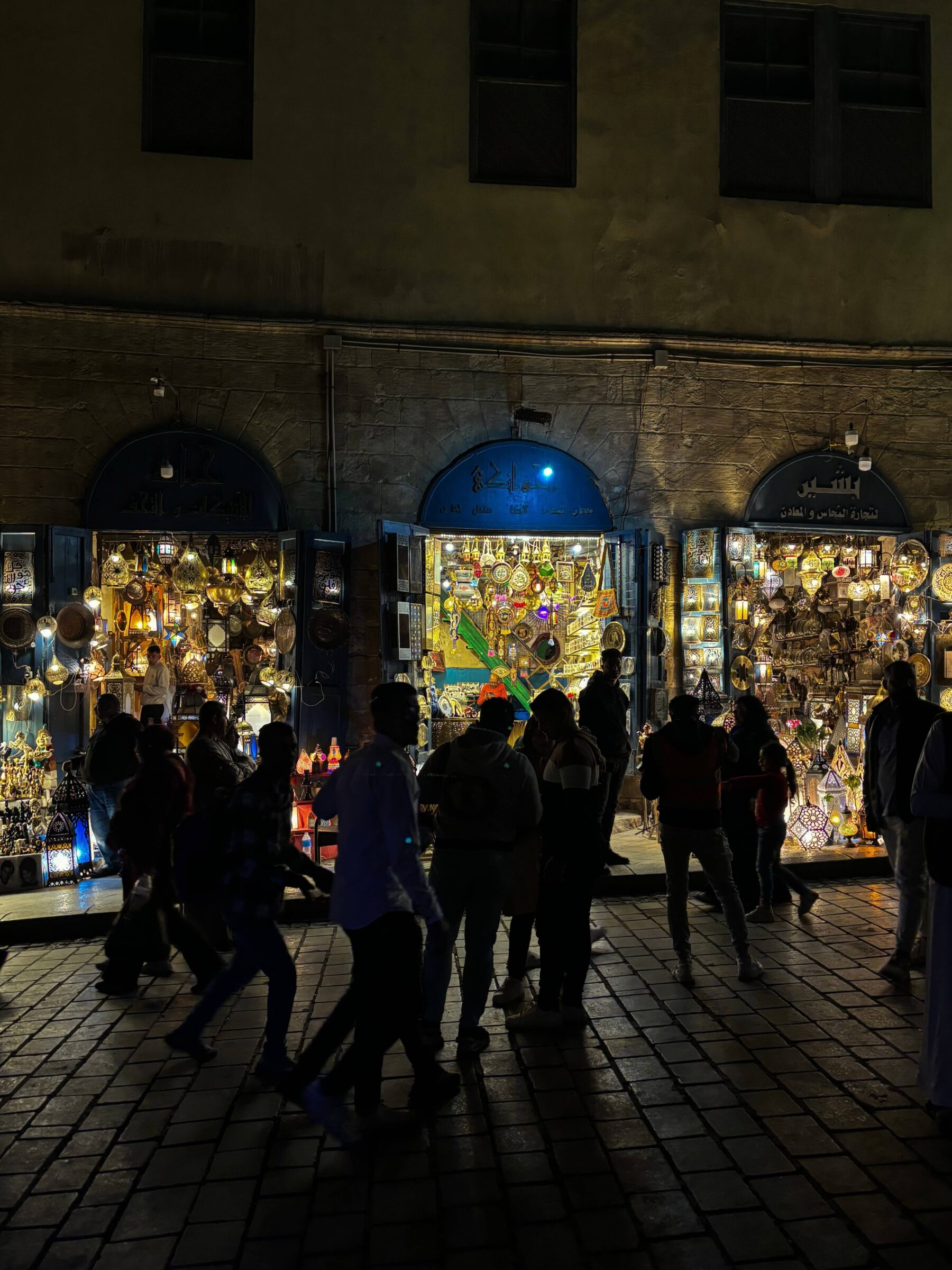

One of the most important aspects of my study abroad plans was to become immersed in the Arabic language and gain comfortability in using it more often again. Arabic is actually my first language, but given the intense amount of time I spent in an only English speaking high school and college, I had code switched to only using English when I was communicating with others. I could still understand and speak Arabic, but I gained a nervousness when speaking to Arabic speakers, not knowing how much to trust my fluency, due to the lack of practice I was getting.
Little did I know that the immersive language experience I was planning for would start as soon as I stepped foot into my plane to Egypt! Since I was flying with Egyptair, as soon as I entered the plane, the flight attendants and plane announcements began speaking in Arabic right away. Initially, I definitely felt myself panic because I was questioning my fluency, and my fears of saying the wrong thing became very apparent. I felt as though all the words I knew would disappear from my mind as soon as I started speaking.
As the flight went on, I started speaking in my own head in Arabic before speaking to a flight attendant as a way of calming my nerves and reassuring myself that I am more fluent than I am giving myself credit for. Soon enough, I began speaking to the flight attendants in small ways and retraining my ears to only hearing Arabic. My comfortability began to grow and allowed my excitement to kick in because I realized that I was going to get the language practice and cultural connection that I had hoped for.
Ever since I arrived in Egypt, I continue to encounter situations that motivate me to speak Arabic. This has helped me push past the fear and nervousness that sometimes holds me back from speaking the language. Since another huge goal of mine while abroad is cultural immersion, I have spent a lot of time in parts of Egypt where people can only speak Arabic, making it my only form of communication. This has been an amazing way for me to connect with locals in those areas and even get my only English speaking friends to connect with them through translation. I have learned how difficult it can be for locals, especially those who are tour guides or directly working with tourists, to engage with tourists that they cannot communicate with in the ways that they would like, so I have loved being able to mediate these experiences for them by translating between languages for both groups of people. Through this experience, I have also gotten the opportunity to expand the network of incredible people I have gotten to connect with and learn more about.
One of my favorite wholesome experiences has been local Egyptians asking me to teach them some English while they also allow me the space to ask questions about Arabic words that I have forgotten or was not familiar with given the difference in our dialects. The difference between my Yemeni Arabic dialect and the Egyptian Arabic dialect was actually something I was nervous about when deciding to come to Egypt. I was worried because dialects tend to be nearly different languages, so I didn’t want to be unable to communicate in Arabic and I was worried it would begin replacing my Yemeni Arabic. But, it has actually only given me the opportunity to learn a new dialect, through taking an Arabic course at my university and through conversations with locals, and still getting to practice my own dialect with the Yemenis I have gotten to meet or just by communicating with any Arabic speaker across our dialects.
I am extremely thankful to the nonjudgmental spaces that I have been provided with throughout my stay in Egypt and to the incredible people that have offered me grace and been open to learning from one another and connecting with each other through both our differences and our similarities.
